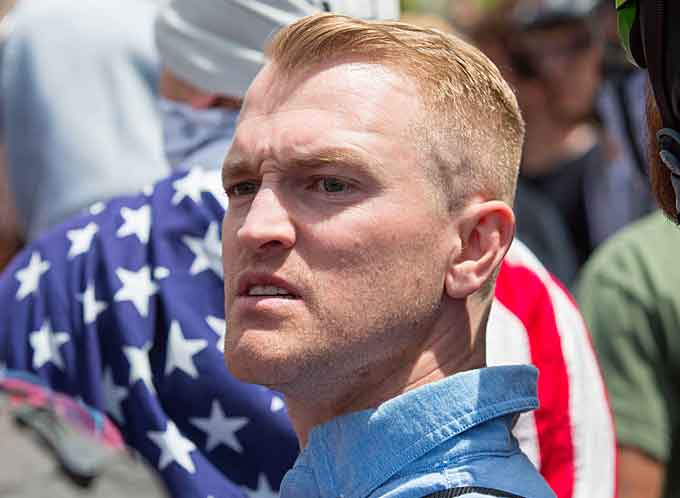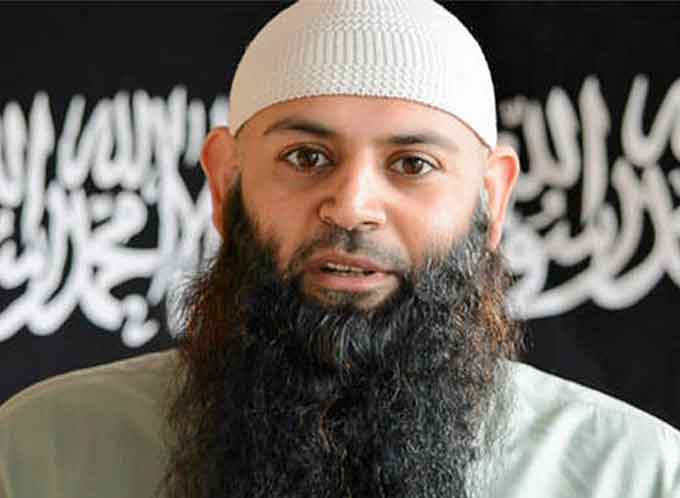
By The Counter Extremism Project
YouTube’s November 2017 decision to remove the videos of notorious al-Qaeda propagandist and recruiter Anwar al-Awlaki was a long overdue step in the right direction, but many more radicalizing propagandists and ideologues have been allowed to remain online.
YouTube’s decision was a positive step in the right direction, but more must be done to eliminate radicalizing extremist ideologies from the Internet.
The Counter Extremism Project’s (CEP) latest resource, a Guide to Online Propagandists, profiles online radical thought leaders who are active on social media platforms like YouTube and encourage violence and hate.
Profiles Include:
Clerics Ahmad Musa Jibril and Abu Haleema, who reportedly radicalized Khuram Shazed Butt, one of the London Bridge attackers
Ahmad Musa Jibril

- From his home in Michigan, Jibril’s online lectures and tweets advocate a Salafist version of Islam that praises jihad, although he doesn’t specifically call upon his followers to join jihadi groups.
- A 2014 report by the International Centre for the Study of Radicalisation found that Jibril “adopts the role of a cheerleader: supporting the principles of armed opposition to Assad.”
- Jibril spent almost seven years in prison on fraud charges before he was released on probation in 2012.
- A federal judge restricted Jibril’s Internet and social-media access in June 2014 after Jibril violated his probation.
- The restrictions expired in March 2015. Jibril had not returned to his digital pulpit as of November 2017, but his Twitter feed, video lectures, and other online media reproducing his teachings remain online.
- Khuram Butt, one of the attackers in the June 3, 2017, London Bridge terrorist attack, was reportedly radicalized while watching Jibril’s videos online.
(Sources: The Counter Extremism Project (CEP), Telegraph, International Centre for the Study of Radicalisation, Reuters, Daily Mail)
Abu Haleema

- “Abu Haleema” is a U.K.-based Islamist extremist who has long been active on social media platforms including YouTube, Twitter, and Facebook, despite being banned from using those platforms by the U.K. government.
- Haleema has been tied to Khuram Butt, one of the June 3, 2017, London Bridge attackers, who was reportedly radicalized in large part by lectures from Abu Haleema.
- Following the London Bridge attack, YouTube removed Haleema’s lectures from its platform in the United Kingdom, but did not ban the videos worldwide.
- In April 2014, British authorities raided Haleema’s home and confiscated his passport, accusing him of conspiring to travel to Syria to join an extremist group.
- In May 2015, Haleema was again arrested and detained in west London.
- He was released without charges on the condition that he would halt his use of social media.
- Abu Haleema had contact with a 14-year-old boy from Blackburn, Lancashire, convicted in a beheading plot targeting police officers during the Anzac Day parade in Australia.
(Sources: The Counter Extremism Project (CEP), Independent)
Qatar-based Muslim Brotherhood ideologue Yusuf al-Qaradawi, who is banned from entering the United States, United Kingdom, and France because of his declared support for suicide bombings and incitement of Islamist violence
Yusuf al-Qaradawi

- Yusuf al-Qaradawi is an Islamist theologian and the unofficial ideologue of the Muslim Brotherhood.
- The Doha-based cleric—known for his extremist rhetoric and militant fatwas (religious decrees)—is one of Sunni Islam’s most influential scholars.
- The Brotherhood has twice offered Qaradawi leadership positions within the group, but he has refused both times, stating he does not want to limit his reach by joining any organization that might “constrain [his] actions.”
- However, he has continually cited Muslim Brotherhood founder Hassan al-Banna as his biggest influence.
- Qaradawi is banned from entering the United States, the United Kingdom, and France due to his reputation as a violence-inciting Islamist. Bahrain, Saudi Arabia, Egypt, and the United Arab Emirates have designated Qaradawi as a terrorist.
- Qaradawi’s writings, speeches, and fatwas have called for the murder of American civilians and troops in Iraq, gay people, and Jews.
- He has also expressed support for domestic violence against women.
(Sources: The Counter Extremism Project (CEP), Al Jazeera, Anti-Defamation League, Fox News, Guardian, Al Jazeera, Associated Press, MEMRI)
Nathan Damigo, founder of the white supremacist group Identity Evropa
Nathan Damigo

- Nathan Damigo created the white supremacist group Identity Evropa in 2016.
- The group promotes white European identity and the preservation of white culture based on the concept of “identitarian politics.”
- Identity Evropa claims to represent a “generation of awakened Europeans” who “oppose those who would defame our history and rich cultural heritage.”
- Damigo is a former Marine who was convicted of armed robbery after returning from two tours in Iraq.
- In prison, he read the works of former KKK leader David Duke.
- Damigo has spoken publicly alongside white nationalist Richard Spencer, whom Damigo has planned to include in future rallies.
- Identity Evropa largely targets college students and views protests like the one in Charlottesville, Virginia, as recruitment drives.
- During an April 15, 2017, anti-Trump rally in Berkeley, California, Identity Evropa counter-protesters reportedly verbally assaulted protesters in attempts to instigate violence.
- Damigo was filmed personally punching a protester in the face.
- Students at California State University at Stanislaus, where Damigo is a student, signed a petition to the university that they do not feel safe with Damigo on campus.
- Damigo stepped down from Identity Evropa’s leadership in August 2017, but maintains an active presence on social media and in white supremacist circles.
(Sources: The Counter Extremism Project (CEP), Identity Evropa, Los Angeles Times, San Francisco Chronicle, Slate, Washington Post, New York Times, Pro Publica)
Abdullah Faisal, who played a part in radicalizing shoe bomber Richard Reid, and is linked to 9/11 attacker Zacarias Moussaoui and would-be Times Square bomber Faisal Shahzad.
Abdullah Faisal
- Abdullah Faisal, born Trevor Forrest in Jamaica, is an internationally banned Islamist propagandist and the leader of Authentic Tauheed, a radical organization aligned with ISIS.
- In 2003, a U.K. court convicted Faisal of soliciting murder and inciting racial hatred under the country’s 1861 “Offences Against the Person Act.”
- According to the U.K. government, Faisal played a part in radicalizing shoe bomber Richard Reid.
- Faisal has been linked to 7/7 London bomber Germaine Lindsay, and Zacarias Moussaoui, the only person to have been convicted in a U.S. court for involvement in the 9/11 attacks.
- U.S. intelligence officials alleged that the would-be Times Square bomber, Faisal Shahzad, was radicalized in part by Abdullah Faisal.
- Parveg Ahmed, a Queens resident arrested while attempting to travel to Syria to join ISIS was found to have listened to recordings of Faisal.
- Faisal is currently in Jamaican custody, awaiting an extradition hearing for charges in the U.S. related to ISIS recruitment.
- Since his arrest, Faisal has been accused by Indian authorities of communicating with two ISIS operatives.
- Manhattan District Attorney Cyrus R. Vance Jr. has accused Faisal of using his lectures, website, and videos to incite “untold numbers of people around the world to take up the cause of jihad.”
(Sources: The Counter Extremism Project (CEP), Guardian, BBC, NPR, Newsweek, U.S. Department of Justice)
(The Counter Extremism Project acts to shine a light of transparency and accountability on those persons, businesses and institutions that financially underpin the activities of extremist groups. Courtesy of Counter Extremism Project and YouTube)
















